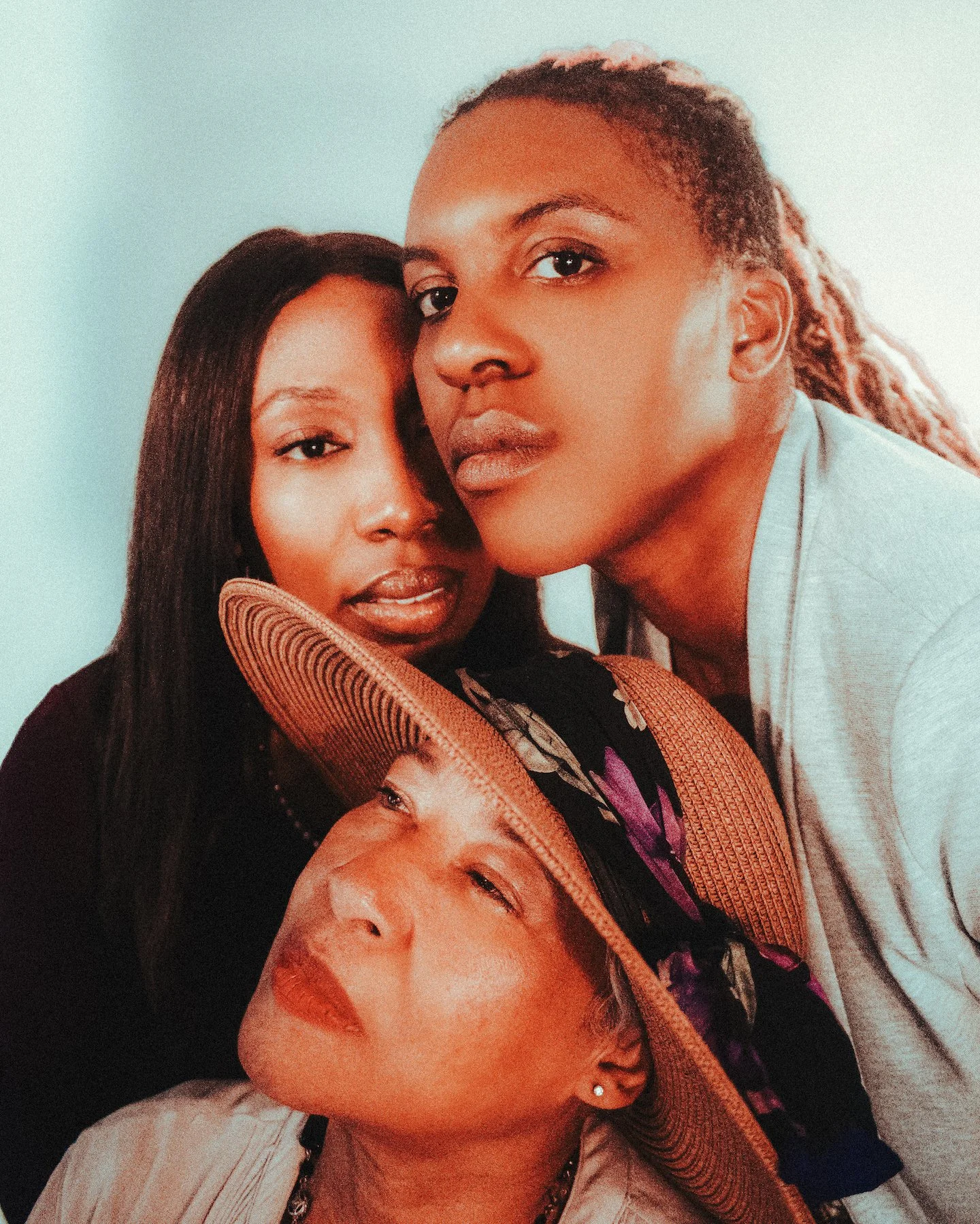Frank Theatre's Fay Nass is drawn to How Black Mothers Say I Love You's look at immigrants' experience and their family dynamics
Trey Anthony play follows Jamaican mother’s complicated reunion with her daughters, after years of working abroad
Kerën Burkett, Alisha Davidson, and Celeste Insell. Photo by Zuleyma Prado
The Frank Theatre’s production of How Black Mothers Say I Love You premieres at the Cultch’s Historic Theatre from November 2 to 12
PLAYWRIGHT TREY Anthony’s How Black Mothers Say I Love You is a tale of unconditional love and misunderstandings. Many years after hard-working mother Daphne, played by Celeste Insell, leaves her two daughters, played by Kerën Burkett and Alisha Davidson, in Jamaica to pursue a better life for her family in Canada, she is reunited with her daughters and the complications of their relationship resurface.
Director Fay Nass was drawn to the script in part due to their own lived experience as a queer child of Iranian immigrant parents.
“How Black Mothers Say I Love You is a story about family dynamics and the sacrifices that many immigrants make in order to make a better life for their children,” Nass says in a phone interview with Stir. “But also the complexities in these relationships, especially when it deals with intersections of queerness, culture, and different generations with different sets of values and beliefs.
“Many immigrants must leave their homes, their families, their loved ones, their friends, their culture, and their language in order to give birth to better opportunities, but with that comes a huge loss,” Nass continues. “These are things many immigrant people have to navigate in order to find themselves, in a tangle between the past and their new identity.”
As artistic and executive director at the frank theatre, Nass has long been interested in stories that examine questions of race, sex, and culture, and have presented their work at PuSh International Performing Arts Festival, Queer Arts Festival, Firehall Arts Centre, and more.
“For the past few decades, I’ve been looking at things that exist out[side] of the Eurocentric perspective,” Nass says. “The language of love is one of those things. How one loves from a different cultural viewpoint, including the literal language, but also the language of love that is different from culture to culture.”
Love was what compelled Nass to explore the work of Anthony, (author of thehit show ‘Da Kink In My Hair), in this production.
“I felt that the characters were beautifully developed, everything was very nuanced,” Nass says. “There was no good or evil, everyone was dealing with their own internal struggles as well as wanting to connect with each other, and there was such beautiful, potent, language that Trey has masterfully brought.
“There's so much love in the play, and I think that love really has translated into the rehearsal space and the process that we have been able to create together,” Nass concludes. “I hope that this production will remind audiences that from nuclear family level to a macro level in the world, we can all enter spaces without assumptions and recognize the impact of empathy.”














